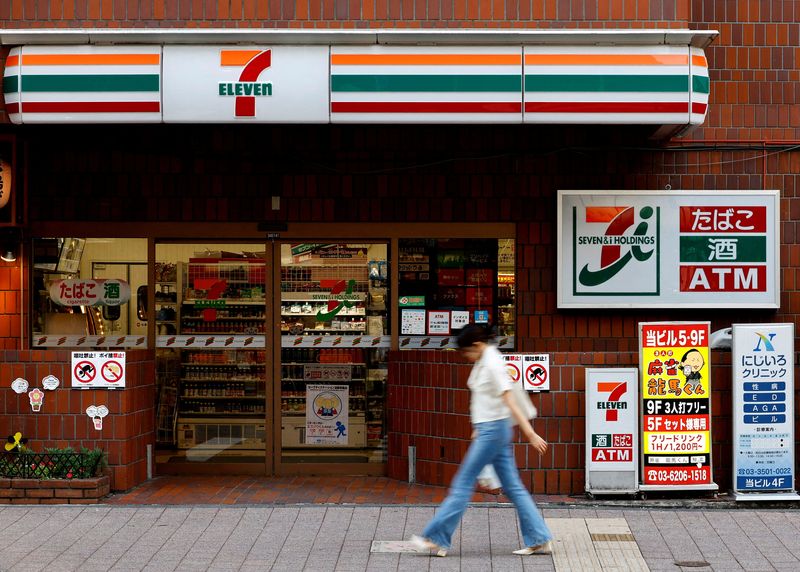TOKYO (Reuters) - Japanese conglomerate Seven & i Holdings laid out a growth plan on Thursday that focused on its core 7-Eleven convenience stores and avoided any mention of a $47 billion takeover bid from Canada's Alimentation Couche-Tard.
Seven & i held an "investor day" to brief analysts and investors on its plan to hive off underperforming businesses and expand overseas as it battles to win over critics and remain independent.
Chief Executive Ryuichi Isaka made no mention of the offer or longstanding shareholder criticism of capital allocation and other aspects of the business, saying the retailer's restructuring path would provide the "discipline to pursue growth."
"We're now at a stage where we can expect to further increase our corporate and shareholder value by seizing growth opportunities in the global market," Isaka said.
Seven & i expects to roughly double sales to 30 trillion yen ($197 billion) come 2030 by expanding in overseas markets such as Vietnam and Australia, with plans to replicate domestic strengths in fresh food offerings to attract customers and bolster profit margins.
Under the restructuring announced, Seven & i said it would split off its supermarket and some 30 other "non-core" units into a holding company. Market reception so far has been underwhelming, with its share price moving little since the plan was first detailed earlier this month.
Some foreign shareholders have long called for a break-up of the conglomerate, whose other businesses include restaurants and a bank. One investor, U.S. fund Artisan Partners (NYSE:APAM), said the latest restructuring plan was "too little, too late" and urged Seven & i to engage with Couche-Tard.
Thursday's three-hour briefing and materials made no mention of Couche-Tard's offer, nor did analysts or shareholders ask about it.
While its Japanese 7-Eleven convenience stores are a money-spinner, Seven & i has been hobbled by poor performance at its supermarkets, including the Ito Yokado stores that make up a part of the holding company formed about two decades ago.
But overseas 7-Eleven stores are less profitable. In Japan, the operating margin is 27%, far above the 3.5% of 7-Eleven stores elsewhere.
The U.S. business has been hurt by a weak macro environment that weighed on consumer appetite, North America chief Joseph DePinto said at the briefing.
Fuel revenue has been flat while a decline of cigarette sales compared to before the COVID-19 pandemic has had a "significant impact" he said. The group was focusing on fresh food to boost sales, he said.

"Clearly the last year has been difficult, and we're not happy with the performance," DePinto said.
($1 = 152.3500 yen)